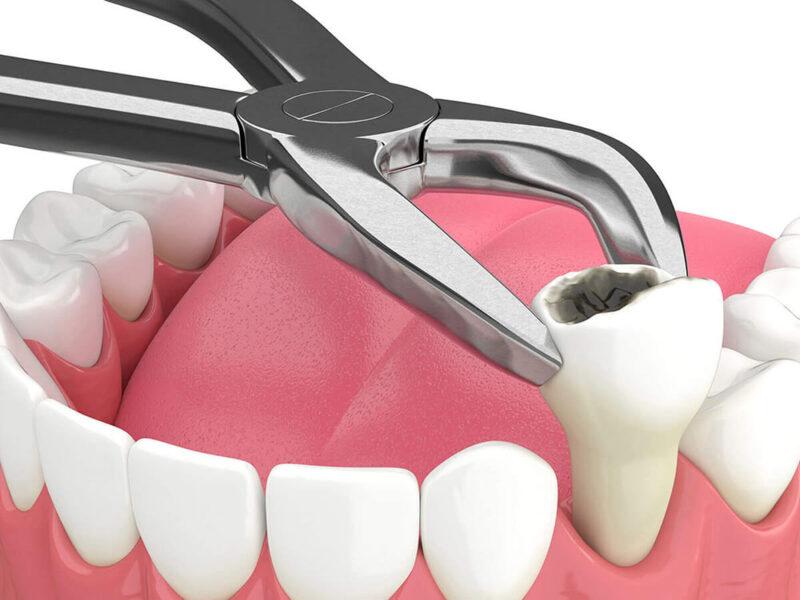What to Eat After Tooth Extractions
Tooth extraction, including wisdom tooth extraction, is a common dental procedure, but knowing what to eat afterward can be tricky. This guide will help you to know what to eat after tooth extraction, ensuring you get a smooth recovery.
First Night After Tooth Extraction: What to Expect and What to Do
The first night after tooth extraction can be uncomfortable, but knowing what to expect helps. Let’s go through some of them:
- Pain and Swelling: Normally, you will experience some pain and swelling especially after the anesthesia wears off. Use ice packs and take pain relief medication as your surgeon prescribes.
- Bleeding: It’s normal to have some bleeding. Bite down gently on gauze pads to help stop it.
- Rest: Avoid strenuous activity and keep your head elevated.
Tip: Stick to soft foods like yogurt and applesauce on the first night after tooth extraction.
What Can I Eat After Tooth Extraction?
Choosing the right foods is very important to heal properly and avoid infections. Here are some great options:
- Soft Foods: Mashed potatoes, smoothies, and scrambled eggs are perfect choices as they are gentle on the extraction site. Eating hard foods can cause the place where the extraction was done to become open and bleed. This will distort the healing process and in some cases can lead to an infection.
- Cold Foods: Ice cream and cold soups can help reduce swelling and discomfort, but remember to take them moderately.
- Nutrient-rich foods: Smoothies with fruits and vegetables provide essential nutrients without requiring much chewing.
What to Eat After Wisdom Tooth Extraction
After wisdom tooth extraction, it’s especially important to choose foods that won’t irritate the extraction site:
- Blended Soups: Firstly make sure you avoid hot soups, but blended soups can provide nutrients without causing pain.
- Smoothies: As they are packed with fruits and vegetables, smoothies are both nutritious and easy to consume.
- Pudding and Jell-O: These are soft, easy to eat, and gentle on the extraction site.
Things to Avoid After Tooth Extraction
Certain foods and habits can hinder healing. Avoid these:
- Hard or Crunchy Foods: You should completely avoid Chips, nuts, and hard candies as these can irritate the extraction site.
- Hot Foods and Drinks: Eating hot foods and drinking hot drinks is like putting petrol into a burning house. The hot temperatures can increase swelling and bleeding as these will activate the receptors in your mouth, making you feel everything.What you need are cold foods to help you reduce pain and swelling .
- Straws: Using a straw can dislodge the blood clot that is highly needed for healing. This can eventually lead to dry socket.
How Long After Wisdom Teeth Removal Can I Eat a Burger?
Well, after getting a tooth extraction, especially wisdom teeth removal, it’s important to follow your dentist’s guidelines for eating to ensure that you heal properly and to avoid complications like dry socket. Here’s a general guideline for eating a burger after a tooth extraction:
Initial Period Post-Extraction
- First 24-48 Hours:
- Diet: For the fist 2 days after your tooth extraction, you should stick to soft foods that require minimal chewing. This includes foods like yogurt, applesauce, mashed potatoes, smoothies, and broths.
- Avoid: Hard, crunchy, and chewy foods. Avoid hot foods and drinks as they can disturb the blood clot formation which is very important for healing.
Transition Period
- 3-5 Days After Extraction:
- Diet: You can start slowly adding semi-solid foods like oatmeal, scrambled eggs, soft pasta, and soft-cooked vegetables into your meals.
- Avoid: You should still avoid very hard, crunchy, or chewy foods. Chewing should be done on the side opposite the extraction site if possible.
Eating a Burger
- After 7-10 Days:
- Diet: Generally, by the 7-10 day mark, you can start reintroducing more solid foods like a burger, provided you chew carefully and avoid the extraction site.
- Precautions:
- Firstly you should cut the burger into smaller, manageable pieces.
- Then, chew slowly and on the opposite side of your mouth from where the extraction took place.
- Make sure you avoid toppings that are particularly hard or crunchy.
General Recommendations
- Healing Time: The specific time frame can vary based on individual healing rates and the complexity of the extraction. So there can not be a general answer for what you should eat after tooth extraction.
- Consult Your Dentist: Always follow the specific advice given by your oral surgeon or dentist, as they understand your unique situation best.
Wisdom Tooth Pain Relief
Pain relief is essential for a smooth recovery. Here are some tips to help ease or relief you from pain you feel after wisdom tooth extraction:
- Over-the-Counter Medications: Ibuprofen or acetaminophen can help manage pain.
- Cold Compress: Apply a cold compress to reduce swelling. A normal ice from the freezer wrapped around a smooth clean cloth can do the trick.
- Salt Water Rinse: Gently rinse your mouth with warm salt water to keep the area clean and relieve pain.
When Will You Start to See Results After Tooth Extraction?
Healing times vary, but here’s a general timeline:
- First Few Days: For this time period, you will notice swelling and discomfort are most intense. You should follow a soft food diet.
- One Week: Swelling should start to reduce, and you can gradually introduce more foods.
- Two Weeks: Most of the discomfort should be gone by this time, and you can eat more solid foods.
Is There Any Way to Shorten Recovery Time after Tooth Extraction?
While patience is essential, here are a few tips to help speed up recovery after tooth extraction:
- Follow Instructions: Adhere to your dentist’s post-extraction care instructions very keenly.
- Eat Soft Foods: Stick to the recommended diet to avoid irritation.
- Stay Hydrated: Drink plenty of water to aid the healing process. Yes, I mean PLENTY! Trust me, you do not want to get dehydrated after having your tooth extracted. This will greatly slow down the healing time.
What Happens at Each Appointment for Tooth Extraction?
Understanding the process of tooth extraction helps to reduce anxiety. Here’s what to expect:
- Consultation: Your dentist will assess the need for extraction and discuss the procedure.
- Procedure Day: Your mouth will be numbed with local anesthesia or you can be put under general anesthesia depending on your dentists or surgeons advice.
The tooth will be removed, and you’ll receive post-care instructions.
- Follow-Up: Your dentist will check the healing process and address any concerns.
The Parts of Tooth Extraction and What They Do
Understanding the components involved in a tooth extraction can be helpful:
- Local Anesthetic: Numbs the area around the tooth to prevent pain during the procedure.
- Dental Tools: Various tools are used to loosen and remove the tooth.
- Gauze Pads: Placed over the extraction site to help control bleeding.
Frequently Asked Questions About What to Eat After Tooth Extraction
- What are the best foods to eat after tooth extraction? Soft foods like yogurt, applesauce, and mashed potatoes are ideal.
- Can I drink coffee after tooth extraction? It’s best to avoid hot drinks for the first 24 hours.
- When can I brush my teeth after extraction? Gently brush your teeth the day after surgery, avoiding the extraction site.
- How long should I use ice packs? Apply ice packs for 15 minutes on and 15 minutes off for the first 24 hours.
- Is it normal to have a bad taste in my mouth? Yes, but if it persists, contact your dentist.
- Can I smoke after tooth extraction? Avoid smoking for at least 72 hours to prevent complications.
- When can I resume normal activities? Rest for the first 24 hours and gradually return to normal activities.
- How do I know if I have an infection? Signs of infection include severe pain, swelling, and fever. Contact your dentist if these occur.
- What should I do if the bleeding doesn’t stop? Bite down on a gauze pad and contact your dentist if bleeding persists.
- Can I eat spicy foods after extraction? It’s best to avoid spicy foods until the extraction site heals.
By following these guidelines and tips, you’ll ensure a smooth and speedy recovery after your tooth extraction.


